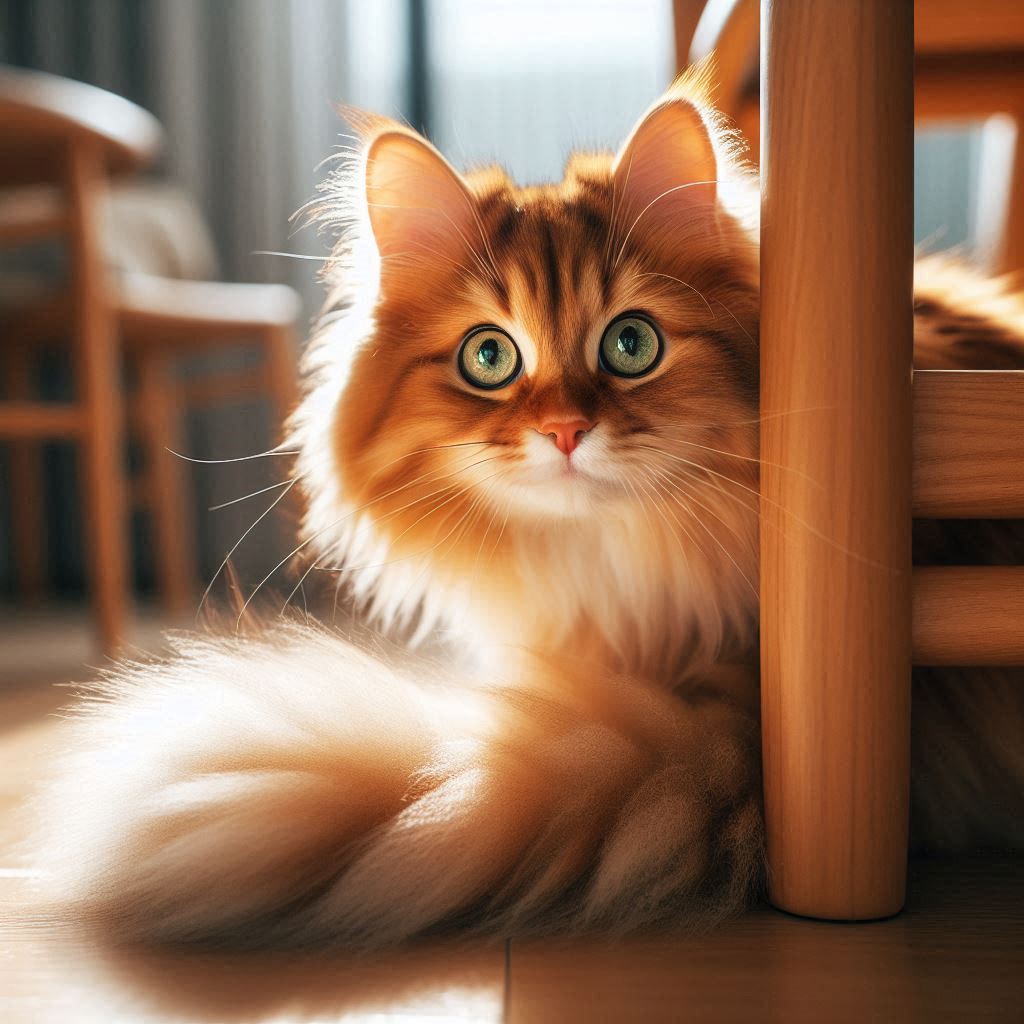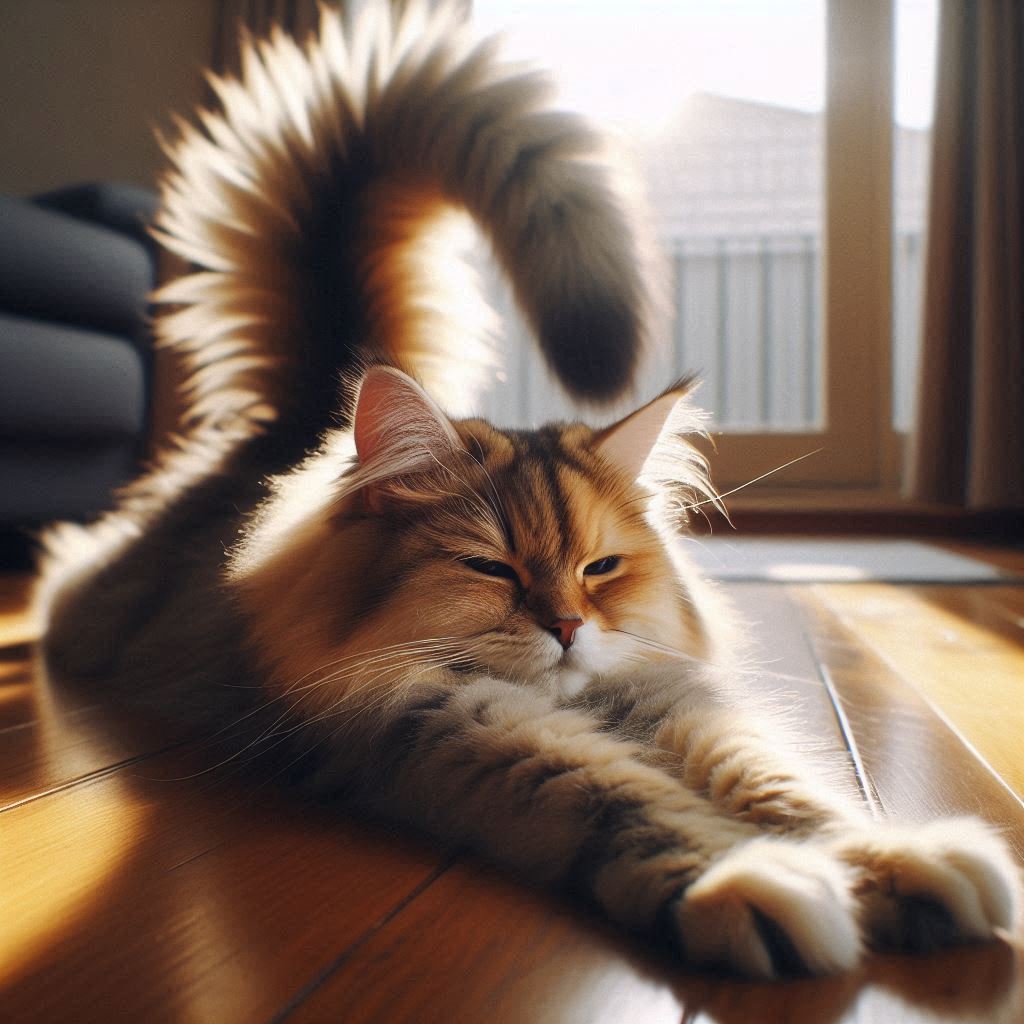Andrew Barton Paterson (1864-1941) was an Australian poet, journalist and author who wrote extensively on Australian life. His notable works include Waltzing Matilda and The Man from Snowy River.
Andrew Barton Paterson (1864-1941) ek Australian shayar/kavi, sahafi/patrakaar, aur musannif/lekhak the jo Australian zindagi par kaafi likhte the. Unke mashhoor kaamon mein Waltzing Matilda aur The Man from Snowy River shamil hain.
The text describes in minute detail the daily activities of cats. The humorous narrative takes us into the world of cats and indicates to us that they may not be the gentle and timid creatures that we take them for.
Yeh matn bilkul tafseel se bilkul cats ke rozana ke kaam dikhata hai. Mazahiya kahani humein cats ki duniya mein le jaati hai aur humein yeh dikhati hai ke shayad cats woh masoom aur sharmeeli makhlooq nahi hain jinke liye hum unhein samjhte hain.
Unit I
Most people think that the cat is an unintelligent animal, fond of ease and caring little for anything but mice and milk. But a cat has really more character than most human beings, and gets a great deal more satisfaction out of life.
Zyada tar log yeh samajhte hain ke billi ek aqal se pareshan janwar hai, jo aaram pasand hai aur mice aur doodh ke siwa kisi cheez ki parwaah nahi karti. Lekin asal mein billi ka character aksar insano se zyada hota hai, aur woh zindagi se zyada lutf uthati hai.
He-or she is an athlete, an acrobat and a grim fighter. All day long the cat loafs about the house, takes things easy and allows himself to be pestered by the attentions of the people in the house. To pass the time away he sometimes watches a mouse-hole for an hour or two-just to keep himself from dying of boredom. People get this idea that this sort of thing is all that holds life for a cat. But watch him as the shades of evening fall. You can see the cat as he really is.
Woh (male ya female) ek khilari, ek acrobat, aur ek sakht fighter hoti hai. Saara din billi ghar mein idhar udhar ghoomti hai, aaram se rehti hai aur ghar walon ki tawajjo ka nishana banti hai. Waqt guzarnay ke liye kabhi kabhi billi ek chuhe ke surakh ko ek ya do ghante tak dekhti hai, bas bore hone se bachne ke liye. Logon ko lagta hai ke billi ki zindagi bas isi tarah ki hoti hai. Magar isey dekho jab shaam dhalti hai. Tab tum billi ko uski asal surat mein dekh sakte ho.
Unit II
When the family sits down to tea, the cat puts in an appearance to get his share. He purrs noisily and rubs himself against the legs of the family members. If there is a guest at the table the cat is particularly civil to him, because the guest is likely to have the best of what is offered. Sometimes, instead of giving him something to eat, the guest stoops down and strokes the cat, and says, “Poor pussy! Poor pussy!” The cat soon tires of that. He puts up his claw and quietly but firmly rakes the guest in the leg. “Ow!” says the guest, “The cat stuck his claws into me!” The delighted family remarks, “Isn’t it sweet of him? Isn’t he intelligent? He wants you to give him something to eat.”
Jab ghar wale chai ke liye baithte hain, billi apna hissa lene aati hai. Woh zor se purr karti hai aur ghar walon ki tangon se apne aap ko ragadti hai. Agar koi mehman table par ho toh billi uske liye khaas civil hoti hai, kyunki mehman ke paas behtareen khana hota hai. Kabhi kabhi, kuch khilane ke bajaye, mehman billi ko sahlaata hai aur kehta hai, “Bechari billi! Bechari billi!” Billi isse jaldi tang aa jaati hai. Woh apne panjay uthati hai aur ahista se mehman ki taang ko chur jati hai. “Aray!” mehman kehta hai, “Billi ne mujhe chur diya!” Khushi se ghar wale kehte hain, “Kya yeh pyaari hai? Kya yeh samajhdar hai? Woh chahta hai ke tum usay kuch khilao.”

The guest dares not do what he would like to do-kick the cat out of the window. So, with tears of rage and pain in his eyes, he affects to be very much amused, and sorts out a bit of fish from his plate and hands it down. The cat gingerly receives it, with a look in his eyes that says, “Another time, my friend, you won’t be so slow to understand.” He purrs as he retires to a safe distance from the guest’s boot before eating his food.
Mehman, jo woh chahta hai woh nahi kar sakta – billi ko khidki se bahar phenke. Isliye, ghusse aur dard ke aansu ankhon mein liye, woh dikhata hai ke woh bahut khush hai, aur apne plate se machhli ka ek tukda nikal kar neeche deta hai. Billi aahista se isay leti hai, apni ankhon mein yeh dekh kar kehti hai, “Agli dafa, mere dost, tum itna slow nahi rahoge.” Woh purr karti hai jab woh mehman ke jootay se door hokar apna khana khati hai.
Unit III
When the family has finished tea, and gathers round the fire, the cat casually goes out of the room. True life now begins for him. He saunters down his own backyard, springs to the top of the fence, drops lightly down to the other side. He trots across and skips to the roof of an empty shed. His movement becomes lithe and pantherlike. He looks keenly from side to side and moves noiselessly, for he has so many enemies-dogs and small boys with stones.
Jab ghar wale chai khatam kar lete hain aur aag ke ird-gird jama ho jaate hain, billi aise hi kamre se nikal jaati hai. Ab uski asal zindagi shuru hoti hai. Woh apne hi backyard se guzarti hai, fence ke upar chadhti hai, dusri taraf halka sa girti hai. Woh tezi se nikalti hai aur ek khaali shed ki chhat par chadh jaati hai. Uski harkat panther ki tarah ho jaati hai. Woh barabar dekh kar bagair awaz ke chalti hai, kyunki uske bohot saare dushman hain – kutte aur chhotay ladke pathar le kar.
On top of the shed, the cat arches his back and rakes his claws once or twice through the soft bark of the old roof. He stretches himself a few times to see if every muscle is in full working order. Then, drooping his head nearly to his paws, he sends across a call to his kindred. Before long they come, gliding, graceful shadows. No longer are they the meek creatures who an hour ago were mewing for fish and milk. They are now grim fighters.
Shed ke upar, billi apni kamar jhukati hai aur apne panjay ek ya do baar purani chhat ke mulayam baark se guzarti hai. Woh khud ko thodi dafa stretch karti hai dekhne ke liye agar uski har muscle theek kaam kar rahi hai. Phir, apna sir panjon ke paas le jaakar, woh apne hum-jins ko bulati hai. Zyada der nahi hoti ke woh aate hain, halkay, khoobsurat saaye. Ab woh masoom makhlooq nahi hain jo ek ghante pehle machhli aur doodh ke liye roya karte the. Ab woh sakht fighters hain.

Just think how much more he gets out of his life then you do out of yours! And the sports they have, too! As they get older they go in for sport to the suburban backyards. These backyards that are dull to us, are to them hunting grounds where they have more gallant adventure than King Arthur’s knights ever had.
Socho ke usay apni zindagi se kitna zyada milta hai, aur tumhe apni se kitna kam! Aur khel bhi kitna mazedar hota hai! Jab woh budhe ho jaate hain toh shahr ke backyard mein shikaar ke liye jaate hain. Ye backyard jo humare liye bore hain, unke liye shikaar ki jagah hain jahan unhe Arthur ke shohrat yafta ghazi se bhi zyada adventure milta hai.
It is always spoken as a reproach against cats that they are more fond of their home than of the people in it. Naturally, the cat doesn’t like to leave his country, the land where all his friends are, and where he knows every landmark. Exiled in a new land, he would have to learn a new geography. So, when the family moves, the cat, if allowed, will stay at the old house and attach himself to the new tenants. He will give them the privilege of boarding him while he enjoys life in his own way.
Ye hamesha billi ke khilaf kaha jata hai ke woh apne ghar se zyada ghar walon se lagao rakhti hai. Billi ko apna mulk, wo jagah jahan uske saare dost hain, aur jahan woh har nishan jaanti hai, chor kar jaana accha nahi lagta. Naye mulk mein woh naye geografia seekhna padta. Isliye, jab ghar wale shift karte hain, billi, agar usay chhod diya jaye, purane ghar mein rehti hai aur naye kirayedaron se lagao kar leti hai. Woh unhe yeh saadat deti hai ke woh usay apne hisab se zindagi guzarne dete hain jab woh usay khana dete hain.
The Cat Meaning in Urdu/Hindi/Bengali

| English Word/Phrase | Urdu Meaning | Hindi Meaning | Bengali Meaning |
|---|---|---|---|
| Australian | آسٹریلوی | ऑस्ट्रेलियाई | অস্ট্রেলীয় |
| Poet | شاعر | कवि | কবি |
| Journalist | صحافی | पत्रकार | সাংবাদিক |
| Author | مصنف | लेखक | লেখক |
| Extensively | وسیع پیمانے پر | व्यापक रूप से | ব্যাপকভাবে |
| Notable | قابل ذکر | उल्लेखनीय | উল্লেখযোগ্য |
| Humorous | مزاحیہ | हास्यपूर्ण | হাস্যকর |
| Narrative | کہانی | कथा | বর্ণনা |
| Gentle | نرم | विनम्र | কোমল |
| Timid | بزدل | शर्मीला | লাজুক |
| Unintelligent | بے وقوف | अविवेकी | অবুঝ |
| Fond of ease | آرام پسند | आराम पसंद | আরামপ্রিয় |
| Satisfaction | اطمینان | संतोष | সন্তুষ্টি |
| Athlete | کھلاڑی | खिलाड़ी | খেলোয়াড় |
| Acrobat | بازی گر | कलाबाज | জিমন্যাস্ট |
| Grim fighter | سخت لڑاکا | कठोर योद्धा | ভয়ংকর যোদ্ধা |
| Loafs | آوارہ گردی کرتا ہے | आलस्य से घूमना | আলসেমি করে সময় কাটানো |
| Pestered | پریشان کیا | तंग किया | বিরক্ত করা |
| Attentions | توجہ | ध्यान | মনোযোগ |
| Boredom | بوریت | बोरियत | একঘেয়েমি |
| Shades of evening | شام کی چھائیں | शाम की छाया | সন্ধ্যার ছায়া |
| Purrs | گرجتا ہے | म्याऊँ करना | গুড়গুড় শব্দ করা |
| Civil | مہذب | सभ्य | সভ্য |
| Stoops | جھکنا | झुकना | ঝুঁকানো |
| Strokes | سہلاتا | थपकी देना | হাত বুলানো |
| Tires | تھکنا | थक जाना | ক্লান্ত হয় |
| Claw | پنجہ | पंजा | থাবা |
| Rakes | کریدنا | रगड़ना | আঁচড় কাটা |
| Delighted | خوش | प्रसन्न | আনন্দিত |
| Sweet | پیاری | प्यारा | মিষ্টি |
| Intelligent | ذہین | बुद्धिमान | বুদ্ধিমান |
| Tears of rage and pain | غصے اور درد کے آنسو | गुस्से और दर्द के आँसू | রাগ ও ব্যথার অশ্রু |
| Amused | محظوظ | मनोरंजित | আমোদিত |
| Gingerly | آہستہ سے | धीरे से | সাবধানে |
| Saunters | چہل قدمی کرتا ہے | धीमी गति से चलना | ধীরগতিতে চলা |
| Springs | چھلانگ لگاتا ہے | छलांग लगाना | লাফিয়ে ওঠা |
| Lithe | نرم | लचीला | নমনীয় |
| Pantherlike | چیتے کی طرح | चीते की तरह | চিতাবাঘের মত |
| Noiselessly | بغیر آواز کے | बिना आवाज के | নিঃশব্দে |
| Enemies | دشمن | दुश्मन | শত্রু |
| Gliding | پھسلنا | फिसलना | স্লিপ করা |
| Meek | نرم مزاج | विनम्र | নম্র |
| Mewing | میاؤں میاؤں کرنا | म्याऊँ म्याऊँ करना | মিউ মিউ করা |
| Gallant | بہادر | वीर | সাহসী |
| Reproach | ملامت | निंदा | নিন্দা |
| Exiled | جلا وطن | निर्वासित | নির্বাসিত |
| Landmarks | نشانات | निशान | নিদর্শন |
| Privilege | اعزاز | विशेषाधिकार | বিশেষাধিকার |
| Boarding | قیام | ठहरने | থাকার |
| Enjoys | لطف اندوز | आनंद उठाना | উপভোগ করা |
Related Post
Posts That You May Like
Share with your friends
- Facebook
- Twitter
- Linkedin
- Whatsapp
- Telegram
- Pinterest



